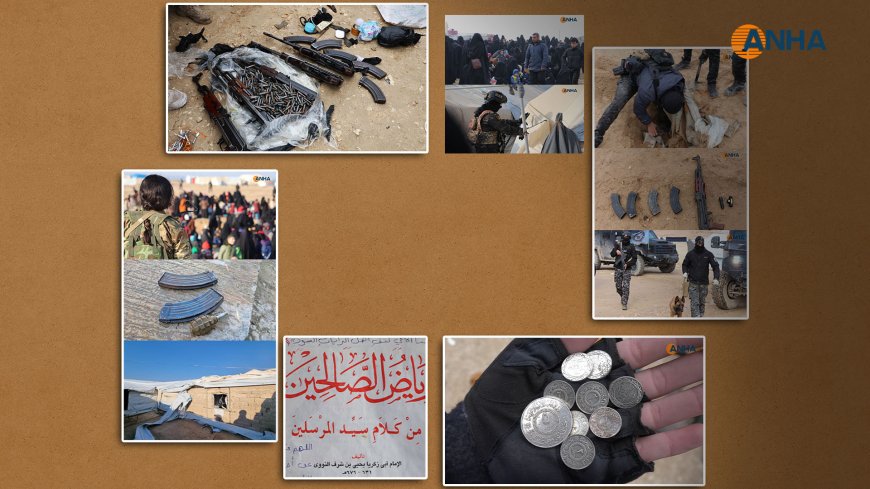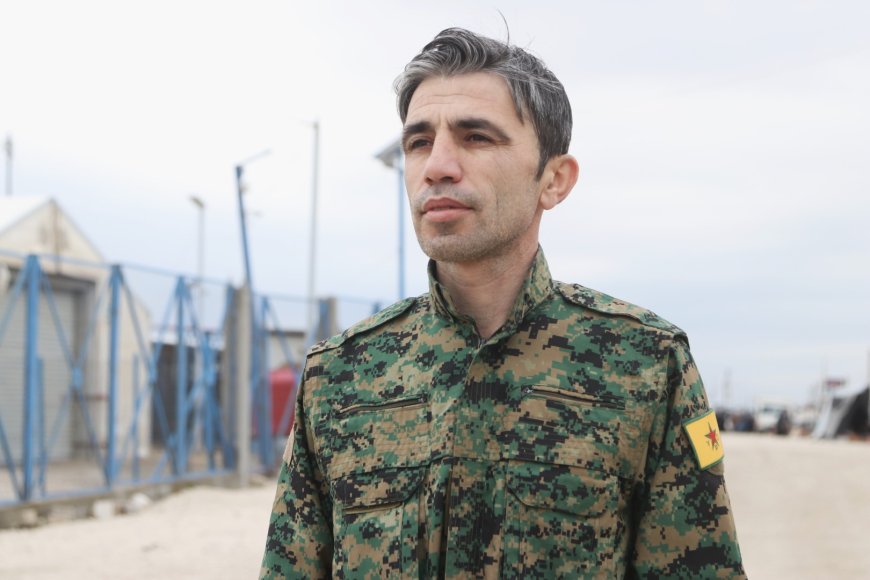Assessing impact al-Hol Camp campaign in future security of NE, Syria
The Director of the Media Center of the People's Protection Units (YPG) unveiled the coordination mechanism that existed between ISIS mercenary cells inside and outside al-Hol Camp, the importance of eliminating some of its leaders, arresting others and those who agreed with them, and the extent of its impact on the security and stability of North and East Syria.

An exclusive statement, the Director of the Media Center of the People’s Protection Units (YPG), Siyamand Ali, explained to ANHA agency the results of the new information reached by the forces participating in the third phase of the “Humanitarian and Security” operation based on preliminary investigations with those who were arrested, led by the so-called. Abu Abdul Hamid.

Ali said: “The so-called (Abu Abdul Hamid), who was arrested in a special operation on February 3 inside al-Hol Camp, is responsible for extremism, spreading fatwas, training children, and legitimizing terrorist fatwas, such as killing, beating, or imposing royalties. He was the mastermind of terrorist operations on the one hand, and raised the pace of extremism on the other hand.
He added, "With regard to internal security matters, the so-called (Abu Ubaida) was responsible for them, and he was killed on December 27, 2023, in a special operation by special units of our forces. He was also responsible for introducing and distributing weapons and recruiting young men and women to carry out terrorist operations against institutions and people inside the camp." Even against our forces."
Regarding coordination between ISIS cells inside and outside al-Hol Camp, and those responsible for them outside, Siyamand Ali explained: “Outside the camp, the so-called Abu Sufyan was responsible, and at one time he was present inside the camp and somehow went out to the camp’s vicinity.”
He said about the tasks that were assigned to him, “His tasks were to gather the largest number of young men and begin recruitment operations to carry out terrorist operations outside the camp, in addition to collecting the largest amount of cells and weapons and distributing them around the camp. Abu Sufyan is considered responsible and accused of more than 80 assassination operations inside and outside the camp.”
Ali confirmed: “Abu Sufyan was wanted on our lists since the first and second phases of the “Humanitarian and Security” operation, but he was hiding under fake names, and until his departure he took the Dashisha and desert areas as his place.”
He explained how the forces reached him, “After arresting dozens of terrorists who were involved with him in terrorist operations, we were able to reach some leads and follow them to reach his hiding place and eliminate him. He was killed during a special operation by the Rapid Intervention Forces (HAT). The forces tried to arrest him alive, but he took the initiative.” To confront the forces, so the forces were forced to kill him along with someone who was with him, and large quantities of weapons, ammunition and explosive materials were found with him.”
The Amir of assassinations, the mercenary "Mahmoud al-Lahibi", nicknamed "Abu Sufyan", was killed with another member who was with him on the night of February 4, in his hiding place in a house on the road to the village of Al-Khuwaytla in the Dashisha countryside of al-Hasakah in Jazira canton.
“Humanitarian and security foiled the largest terrorist plans against the region.”
Siyamand Ali confirmed: “In this way, ISIS mercenaries were trying to manage themselves inside and outside the camp, and today, after the humanitarian and security operation in its third phase, and blocking three main parties in front of ISIS mercenaries, if extremism, security matters, and hiding weapons inside and outside the camp, we can say that this The operation largely stopped the terrorist operations planned by ISIS.”
He noted that ISIS cells are exploiting the attacks of the Turkish occupation state on the region, saying: “According to the evidence we have, the weapons, and those involved who were arrested, it is clear that there is a major plan that depends on the attacks of the Turkish occupation and the outbreak of any war in the region in order for them to carry out similar operations as they did in al-Sina'a prison.”
The third phase of the "Humanitarian and Security" operation ended on February 6, after continuing for ten days inside the camp.
The Internal Security Forces of North and East Syria confirmed, during their final statement, that they blocked the plans of ISIS mercenaries to organize themselves forcefully and take control of al-Hol Camp and its surroundings, killing the cell official, and arresting the spreaders of Takfiri thought, the issuers of death fatwas, and 85 mercenaries and collaborators.
T/ Satt.
ANHA












